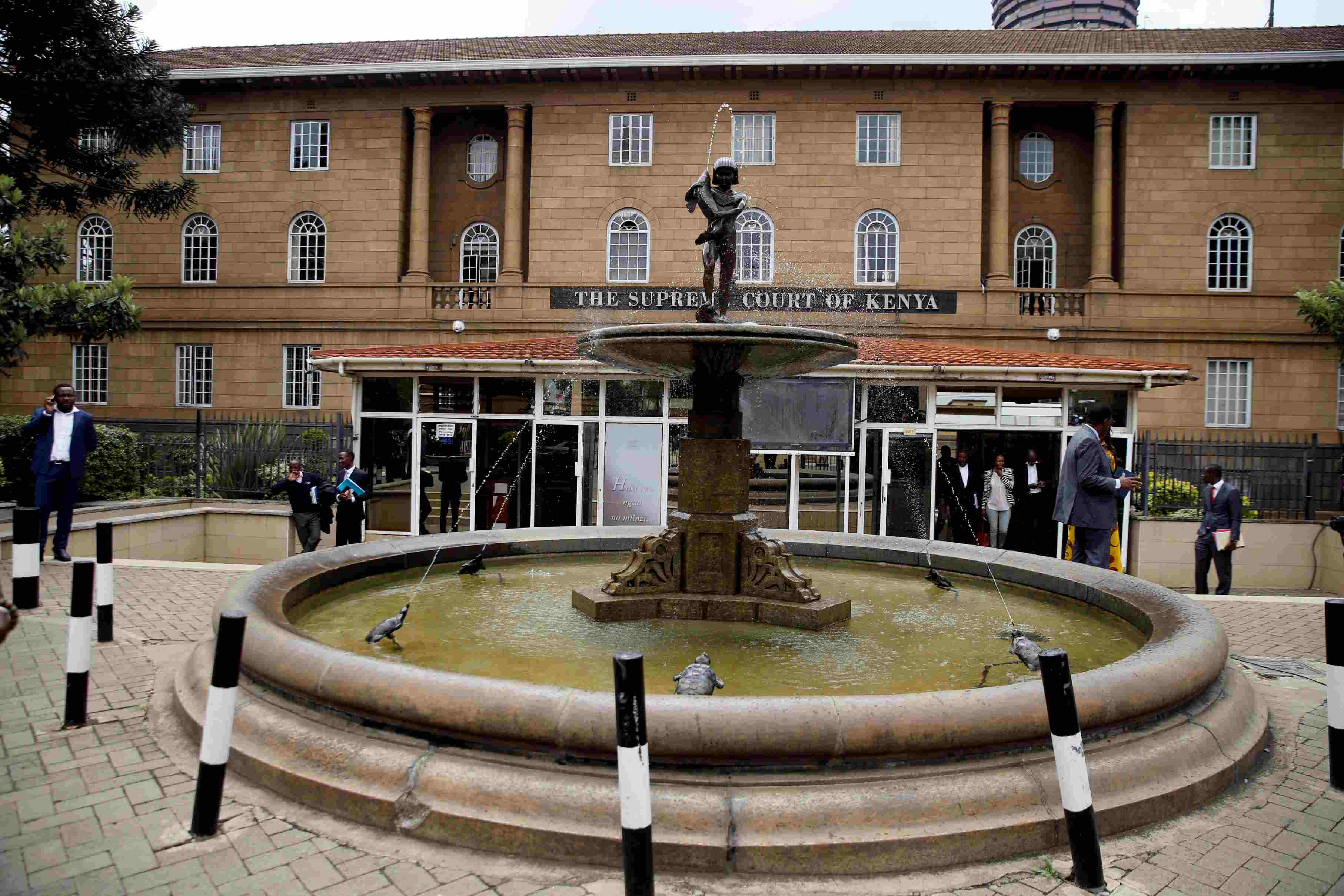Supreme Court rejects IEBC bid to extend boundary review timelines

The application by IEBC had posed three questions: whether the commission could conduct boundary delimitation without commissioners, whether the timelines under Articles 89(2) and 89(3) of the Constitution had lapsed, and if such timelines could be extended, by whom and under what circumstances.
The Supreme Court has turned down a request by the Independent Electoral and Boundaries Commission (IEBC) to issue an advisory opinion on extending the lapsed timelines for reviewing electoral boundaries, saying the matter is already before the Senate through a legislative process.
Delivering the ruling, Chief Justice Martha Koome and the full bench of the court said political leaders should stop eroding public trust in the electoral body for short-term gain and instead use their positions to strengthen the institution’s structures and accountability mechanisms.
The judges noted that Kenya’s electoral history has been marked by deep mistrust between citizens and the IEBC, a challenge traced back to years of politicisation, attacks on its independence, and the failure to implement reforms.
“This deficit did not occur by accident; rather, it is the product of decades of politicisation of the electoral process, relentless attacks on the Commission’s independence, and a failure to implement electoral reforms in good time and in good faith,” they said.
The court stressed that leaders have a constitutional duty to uphold the institutions that safeguard democracy.
“Rather than fuelling this mistrust for short-term political gain, undermining the very institutions they are duty-bound to protect, they should channel their power and influence towards addressing structural weaknesses, enhancing accountability, and reinforcing public confidence in the impartiality and competence of the IEBC,” the bench ruled unanimously.
The judges added that Kenya’s democratic order depends not only on credible institutions but also on political actors remaining faithful to the Constitution and the sovereignty of the people.
They recalled that their 2022 presidential election verdict had already warned of the need for urgent legal, policy and institutional reforms to address governance gaps within IEBC.
The application by IEBC had posed three questions: whether the commission could conduct boundary delimitation without commissioners, whether the timelines under Articles 89(2) and 89(3) of the Constitution had lapsed, and if such timelines could be extended, by whom and under what circumstances.
At the time of filing the application on July 4, 2024, the commission was without commissioners or a chairperson, leaving only the Secretariat under CEO Marjan Hussein to run operations. The previous commissioners had resigned shortly after the 2022 General Election, and new ones were only appointed in July 2025.
The court ruled that the Secretariat cannot carry out the commission’s constitutional duties in the absence of commissioners and quorum.
“A clear distinction must be drawn between administrative continuity by the Secretariat and the exercise of constitutional authority vested in the Commission as a collegial entity,” the judges said. “It is our considered view that the exercise of constitutional functions expressly reserved for the Commission, such as those enumerated under Article 88(4) of the Constitution, cannot be lawfully discharged in the absence of a properly constituted Commission with the requisite quorum as contemplated under Article 250(1) and (2).”
On the issue of extending review timelines, the bench observed that the National Assembly had already passed the Constitutional Amendment Bill, 2024, which is currently before the Senate. For that reason, the judges held that the application lacked merit.
“We are similarly constrained to find that, prior to the Commission first considering and applying its mind to the matter, particularly in light of the ongoing legislative intervention pending before the Senate, this court lacks any basis upon which to assess or evaluate the propriety or validity of any decision, or failure to decide, on its part. As we have repeatedly stated, this Court does not engage in hypothetical determinations,” they ruled.
The Constitution under Article 89 requires the IEBC to review constituency boundaries every eight to twelve years and to complete the exercise at least a year before a General Election.
The same timelines apply to ward reviews under Article 89(3) and Section 26(3) of the County Governments Act. The last review was done in 2012, meaning the next one should have been conducted between March 6, 2020, and March 6, 2024.
